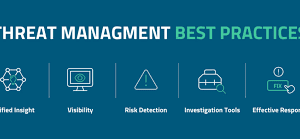Artificial intelligence (AI) is reshaping the world of product management, providing product managers (PMs) with advanced tools to boost productivity, streamline workflows, and make more informed decisions. Across industries, companies are integrating AI into their product management frameworks and seeing significant improvements in efficiency, innovation, and competitiveness. By leveraging AI, PMs can make data-driven decisions, automate repetitive tasks, and proactively mitigate risks-transforming how products are conceived, built, and optimized.
This article explores how AI is revolutionizing each stage of product management-from ideation to post-launch optimization-and outlines practical ways for product leaders to implement AI effectively. We’ll cover four major areas where product managers benefit most from AI and offer actionable recommendations for getting started.
#1: AI Tools for Decision-Making – AI-Powered Decision-Making: Turning Data into Strategic Advantage
One of AI’s most powerful advantages in product management lies in its ability to process and interpret vast amounts of data, helping PMs make smarter strategic decisions. Product managers handle diverse data sources, including user feedback, analytics, market research, and sales reports. AI-powered platforms can efficiently analyze these datasets, uncover patterns, and deliver insights that would otherwise take hours-or days-of manual effort.
Customer Insights and Feature Prioritization:
AI enables product managers to better understand customer behavior through advanced analytics and natural language processing (NLP). Tools like Salesforce Einstein and IBM Watson analyze customer feedback, social media data, and survey responses to identify patterns in user sentiment, preferences, and engagement. This data-driven insight allows PMs to prioritize product features with the highest potential impact.
According to Gartner (2023), organizations that utilize AI for product data analysis experience a 20–25% increase in decision-making efficiency due to improved insights. For example, Spotify uses AI to analyze listening behaviors and demographic patterns, which helps shape its feature roadmap and enhance user experience-resulting in higher engagement and retention.
Strategic Planning and Competitive Analysis:
AI is also transforming how PMs approach competitive intelligence and strategic planning. Tools like Crayon and Crate collect and analyze competitors’ product updates, pricing strategies, and market trends. These insights empower product managers to make informed decisions about product positioning, identify growth opportunities, and stay ahead in fast-moving markets.
An AI project management tool for sales teams can streamline this process, helping organizations connect data across departments and uncover actionable insights faster. With AI-powered analytics, teams can quickly interpret trends, prioritize opportunities, and make data-driven decisions that would otherwise require extensive manual effort. This integration of AI into cross-functional workflows bridges the gap between sales, marketing, and product teams, fostering more agile and data-aligned decision-making across the organization.
Case Study: Salesforce’s AI-Powered Customer Insights
Salesforce’s Einstein platform exemplifies how AI can elevate product management. By analyzing customer interactions and sales patterns, Einstein provides PMs with actionable insights that guide feature prioritization and UX improvements. Salesforce reports that product managers using Einstein have achieved a 15% boost in customer engagement, illustrating how AI directly enhances product success.
#2: Automating Routine Tasks: Empowering Product Managers to Focus on Strategy
AI excels at automating time-consuming, repetitive tasks-allowing PMs to redirect their focus toward strategy, innovation, and customer-centric initiatives. From backlog management to reporting, AI automation optimizes workflows and strengthens team collaboration.
Automated Backlog Management and Prioritization:
Managing a product backlog involves constant reorganization and prioritization, often consuming a significant portion of a PM’s time. AI platforms such as Craft.io and Productboard automate this process by ranking features based on potential impact, identifying redundant items, and highlighting key updates. According to a Forrester (2022) study, teams that use AI-driven backlog management tools spend up to 30% less time maintaining backlogs, freeing up capacity for strategic planning and innovation.
Reporting and Data Entry Automation:
AI tools like Monday.com and Airtable automate reporting and consolidate data from multiple systems-such as Google Analytics, CRM platforms, and sales databases-into clear, real-time dashboards. This eliminates the need for manual data entry and enables faster performance tracking. McKinsey & Company (2023) found that automated reporting reduces manual workload by about 40%, improving productivity and allowing PMs to act swiftly on performance metrics.
Case Study: Atlassian’s Use of AI for Enhanced Collaboration
Atlassian integrates AI into its project management suite, including Jira and Trello, to improve collaboration and efficiency. AI-powered features like predictive task assignment, automated updates, and real-time tracking have led to a 25% improvement in cross-functional collaboration, helping teams shorten development cycles and make faster, better-informed decisions.
#3: Predictive Intelligence in Product Management: Anticipating Risks and Trends
AI’s predictive capabilities empower product managers to anticipate trends, assess risks, and optimize resource allocation. By analyzing historical data and current market dynamics, AI tools enable PMs to make proactive, not reactive, decisions.
Anticipating Market Trends and Customer Preferences:
AI-driven platforms such as Trendalytics and NetBase Quid use machine learning to analyze social media, customer reviews, and industry data, identifying early signals of shifting market demands. Shopify, for instance, applies AI forecasting to predict seasonal sales trends, ensuring better inventory management and fewer stockouts. A 2023 eMarketer study revealed that 65% of businesses using AI forecasting improved their alignment with customer expectations, directly enhancing retention and satisfaction.
Risk Assessment and Scenario Analysis:
Tools like Simulink and RiskWatch allow PMs to simulate different market conditions and assess potential outcomes. By testing multiple product scenarios, PMs can evaluate the risks and rewards of strategic choices, minimizing the chance of costly missteps. Predictive AI risk assessment thus helps organizations make smarter, more resilient product decisions.
#4: Responsible AI in Product Management: Balancing Innovation with Ethics
While AI offers immense productivity gains, it also raises ethical concerns regarding data privacy, bias, and transparency. Responsible AI use is essential to maintaining customer trust and ensuring fairness in decision-making.
Data Privacy and Security:
AI systems often rely on sensitive customer data, making compliance and security top priorities. PMs must ensure GDPR compliance, data anonymization, and secure storage practices. Tools like OneTrust provide comprehensive compliance solutions, helping organizations handle data responsibly while maintaining user trust.
Mitigating Algorithmic Bias:
AI algorithms can unintentionally perpetuate biases in data. To combat this, PMs should use transparent AI systems and regularly audit algorithms for fairness. IBM’s AI Fairness 360 toolkit is a leading example, helping teams detect and reduce bias, thus ensuring ethical and inclusive AI implementation.
Implementing AI in Product Management: A Step-by-Step Guide to Getting Started
For PMs new to AI, adopting these tools can seem overwhelming. However, a gradual and strategic approach ensures a smooth and effective transition.
- Select the Right AI Tools: Begin with accessible, goal-oriented platforms-like Realty AI Productboard for backlog automation or Crayon for market analysis-before expanding into more advanced AI solutions.
- Pilot and Measure Impact: Start small by running pilot projects. Track improvements in productivity, accuracy, and collaboration to evaluate the tool’s effectiveness before scaling organization-wide.
- Integrate Seamlessly: Choose AI tools that integrate with your current tech stack (e.g., Jira, Slack, Confluence) for a cohesive workflow and minimal disruption.
- Emphasize Ethical Use: Establish clear guidelines for data privacy and algorithmic transparency. Regularly review and update your AI ethics policies to comply with evolving regulations.
Conclusion: Transforming Product Management with AI
Artificial intelligence is fundamentally transforming how product managers work-offering smarter insights, automating repetitive tasks, and improving risk management. As AI technologies evolve, PMs who embrace them will achieve measurable productivity gains and deliver products that align more precisely with customer needs.
However, responsible AI implementation remains crucial. By balancing innovation with ethical best practices, product managers can ensure that AI enhances transparency, trust, and decision-making. With a structured approach to adoption and a commitment to responsible use, AI can become the ultimate catalyst for smarter, faster, and more effective product management.
Read More From Techbullion And https://deccanherald.co.uk/































